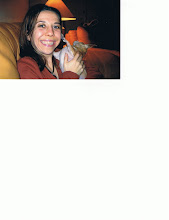As a preview, here are some of the challenges you may (and probably will encounter):
- Interpersonal differences with co-workers: This is a female dominated field and women tend to be hypercritical of other women. It's a competition thing that I have never understood, but I can't deny it's fact. You will be judged. As an example, I was in a discussion with coworkers about one particular woman we worked with. I defended her to the shocked group. Suddenly, the woman they all were griping about started treating me extremely well, (which she hadn't prior). Forewarning: You never know who's listening and telling what you say!
- Politics: As non-registered staff psws are often put down and then conversely asked to take on responsibilities that fall outside their scope of practice. Don't do it. Registered staff are there for a reason and it's not to dump their work load on you. And they'll try, believe me. Take for example, the administration of medications. (I don't mean assisting which is necessary in the community.) Psws are often asked to administer medications for the RPN despite the fact that the RPN knows they could lose their liscence for it. Make no mistake though, any wrong doing would ultimately be placed on the psw if harm is caused to the resident. I'll list my dont's for psws at the end of this blog.
- Blame/anger from family members of residents: It may come from a place of guilt or grief. The only thing I can say is to try not to take it personally.
- Violence: The medical field is one of the most dangerous fields to work in with it being so physically demanding and volatile nature of sick people. I have been kicked, punched and bitten several times and nearly escaped several more times. This is where observational skills are so important. Watch for changes in behaviour/attitude and always be aware of where a residents limbs are. They may come flying at you!
- Government involvement: The increasing lawsuits, especially in the US is forcing more and more government involvement in medical care, which I personally think is a good thing except for all the added paperwork and no time to do it. I have no fear when the ministry comes to examine the inner workings of where I work. The way I figure it, I do the best I can every shift I work and genuinely care for the well-being of my residents. I welcome any suggestions they can come up with for improvement.
- Lack of resources: Inevitably, equipment breaks down or there isn't enough supplies to go around. This is where psws must be resourceful and make due with what they have.
- People with english as a challenge: It's not a second language yet! As fate would have it, many psw schools push through people who do not speak english. This devalues the psw certificate as a whole, but what can I do. In the workplace, this makes communicating very difficult. I have learned to be very patient and have learned some phrases in several different languages to boot.
- Dr. Gevorkian syndrome: Okay so I can't spell his name, but you get the drift. Old/sick people are apt to pass away. And yes, turning a person who is palliative can expediate the process, but I promise-you didn't kill them.
- Seemingly inappropriate in-jokes: Humour is the best way to get through the day. I once worked with a resident who insisted, "No soap on the pussy!" and yes we joked about her for years between the staff. Anyway, sometimes this job is really stressful, especially when someone is quite ill. In order to perform our duties, we put up emotional walls to defend ourselves. This does not mean we aren't empathetic. Don't be overly sensitive about coworkers jokes. "Flipping the pancake" is certainly offensive on a level since it refers to a human being as an inanimate object. I agree. But we have to guard against the sadness of watching a person helplessly struggle to breathe. It's hard to watch. So we extract ourselves emotionally in order to give them the care they deserve and then go and turn the person. That's all.
Dont's for the PSW:
- Administer medications: Ever. Period. End. Stop.
- Make accusations in the communication log: What you write can and will be held against you. Talk things out with a coworker you have an issue with.
- Make diagnoses: It sounds simple, but here are a few you may not know about. Depression is a diagnosis. You can't report that someone is. Death. Only a nurse or doctor can say someone is dead. You can report you think they are dead only.
- Forget you truly are a working class hero. Your job is invaluable.
